The Stoics Teachings and Practises
Focus On Things You Can Control, Ignore The Rest
Well Being, Peace And Happiness Through The Pursuit Of Excellence
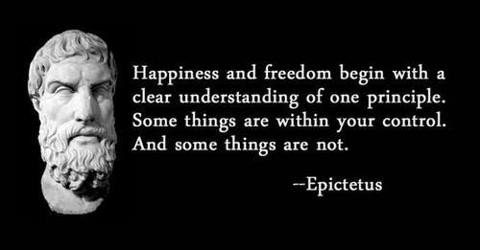
Who Are The Stoics And What Do They Have To Offer?
[1] Who Are The Stoics?
Approximately 2,500 years ago the Greek philosopher Socrates taught moral philosophy. He is generally regarded as one of the founding fathers of western moral philosophy.
He
wrote no books and our knowledge and understanding of his teachings are
derived from the oral tradition handed down to his students - notably
Plato - who composed writings of his teachings after his death.
Plato taught Aristotle who argued that happiness came from living a life of virtue, and he listed a number of these virtues for example: courage, temperance, wisdom and modesty, etc.
Post Plato, Greek philosophers argued extensively about what constituted virtue and how it was applied in practise and this to a split into four schools of thought which dominated philosophical discussion for over 500 years. The four schools were: Cynics, Skeptics, Epicureans, and lastly and the point of our focus here, the Stoics.
The 3 Major Stoics
Unsurprisingly
very little of what was written c2,000 years ago survives today.
However there are 3 Stoics whose work has survived to a reasonable
extent and the lives of these men and their teachings form the
foundation of our present understanding of the meaning and practise of
these core Stoic teachings.
- Seneca - the "Letters of Seneca the Younger" - he was a wealthy Roman Senator who wrote a number of essays and public letters.
- Epictetus - the "Discourses of Epictetus" - he was a former slave turned Stoic teacher, and some of his teachings were recorded by his student, Arrian.
- Marcus Aurelius - the "Meditations by Marcus Aurelius" - he was well-regarded Roman emperor who recorded a daily diary/journal which he used as a Stoic exercise to remind himself of his Stoic principles.
In subsequent articles we will look more deeply at each of these.
[2] The Stoics Philosophy - What Do They Have To Offer?
Stoicism is a philosophy of life with the goal of spiritual well-being.
In practical terms this means adopting practises of thought and behaviour that ease your sufferings and enable you to become the best you can be.
Understanding The Fuller Meaning Of Key, Root Greek Words
As a quick "technical note" here, to get a clear understanding of the intended meaning behind some of the key words and phrases used in the teachings of the Stoics [and any other teachings such as the Christian New Testament] where the original written language was obviously Greek, it is particularly helpful to take a close look at the literal meaning of the original Greek root words.
In common with the the other schools of philosophy in ancient Greece, the stoics had one common goal called "eudaimonia" which in Greek literally means “having a good spirit”, and also be translated as "well-being" or “thriving”.
The
Stoics focused on the pursuit of "virtue" as the necessary and sufficient means to experiencing well being, peace and happiness.
The Greek word for "virtue" is "arete", which
means “excellence”.
3
Good Reasons For The Pursuit Of Excellence [Virtue]
The Stoics concentrated on the the pursuit of excellence for three reasons:
- Being an "excellent person" enables you to exercise the wisdom and skill needed to maximise the benefit that you and others derive from the opportunities and "luck" you get in life.
- Being an "excellent person" is completely under your control. You can change your thoughts, habits and behaviours, with practise, and become a better and more effective person.
- Being an "excellent person" is always the most resourceful way to behave and ultimately the exercising of virtue/excellence is its own reward. In short, it is the best and most fulfilling way to live.
The foundation of the Stoic beliefs
- Rationality: We have the ability to reason and we can use reason to understand the world, to meet the challenges we face, and to make our lives better.
- Virtue/Excellence: Stoics believed in rationality as the vehicle to excellence, and therefore,
happiness.
- Non-emotionalism: Stoics saw emotions as potential distractions from the pursuit of goals and that decisions should be based as much as possible on facts.
The purpose of Stoic beliefs
Stoic
beliefs are practised-based and their strength lies in the regular and
consistent application of these beliefs in daily life, and they offer a
way to:
- Think about how to live and whether what you want will actually help or hinder your happiness.
- Understand what goals to set and pursue in order to help you live your best life.
Interest In The Stoics
Certainly, many of history’s great minds not only understood Stoicism
for what it truly is, they sought it out: George Washington, Walt
Whitman, Frederick the Great, Eugène Delacroix, Adam Smith, Immanuel
Kant, Thomas Jefferson, Matthew Arnold, Ambrose Bierce, Theodore
Roosevelt, William Alexander Percy, Ralph Waldo Emerson. Each read,
studied, quoted, or admired the Stoics.
Growing Modern Interest In The Stoics
Over the past 10 years the Stoics have experienced a minor renaissance partly due to popular writers, bloggers, podcasters and thought-leaders such as Ryan Holiday, William Irvine, Shane Parrish, Tim Ferriss and academics such as Massimo Pigliucci who is featured on this site and offers extensive resources and materials.
There are also a number of popular websites on the Stoics, each offering a wide range of practical material:
In common with mindfulness, the Stoics teachings and practises have started to enter the mainstream and feature in the worlds of business, finance and technology and is increasingly quoted in business articles, journals and book.
Highlights of Stoic Teachings and Insights
1. Focus on things you can control, ignore the rest.
The Stoics referred to this as "the dichotomy of control".
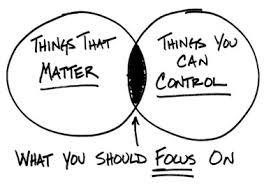
Modern psychologists refer to an “internal locus of control” and an “external locus of control.”
What this basically means is that if you have internal locus of control you will most likely believe that you are responsible for most of what happens in your life.
The consequence of this is that your response to events determines the outcomes you experience.
You focus on what you could do better or what you can influence in pursuing your goals.
Whereas, if you have an external locus of control you will tend to blame others
for your problems, find excuses to not pursue your goals, and
generally live a frustrated and unfulfilled life.
Evidence show that if you have an internal
locus of control there is greater likelihood of you being happier, less anxious,able to make better
decisions and accomplish more of your goals.
This idea has been
around for millennia in various formats. In modern times it is best
known as Reinhold Neibuhr’s “Prayer of Serenity”:
"God, grant
me the serenity to accept the things I cannot change, courage to change
the things I can, and wisdom to know the difference."
2. Accept pain and don’t chase pleasure
The Stoics grasped the paradox of acceptance, that accepting pain rather than struggling against it often makes it more bearable.
The practice of deep acceptance is also a mindfulness technique and one that I have used many times.
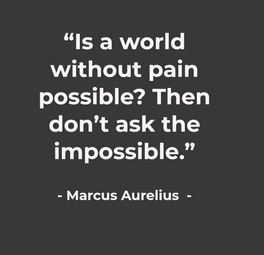
The Stoics recognised that people have a tendency to overestimate the benefits of something that makes them feels good in the short-term and underestimate the costs of it in the long-term.
Chasing things like status and wealth and excitement can backfire terribly.
The
Stoics also correctly noted that many of the good things in life are
painful and require some degree of sacrifice. Therefore, they framed
virtue/excellence in terms of deferred gratification, that is to say,
resisting short-term pleasures for some longer-term and greater gain.
When facing extreme hardship to which there seemed no end the Stoics understood that balancing realism and optimism in a dire situation is a key to survival and success.
3. A good life is a virtuous life.
A life well lived is a virtuous life. The Stoics focused on 4 qualities:
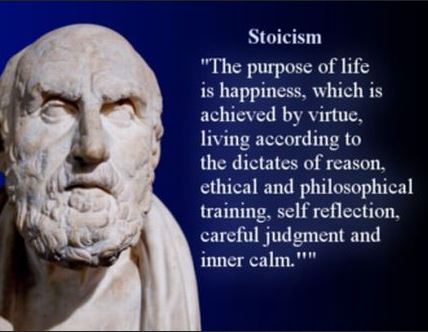
By learning to cultivate what we would now call a mindful approach to the events of life the Stoics believed that in the space between stimulus and response is a gap, and it allows you to step back from your initial emotional response and make a conscious choice.
The greater your wisdom the more resourceful is that choice.
4. Memento Mori - Remember That You Must Die
The Stoics saw great value in the practice they called "Memento Mori" which translates as “Remember that you will die.

This practise aligns with the Buddhist and Christian teachings on impermanece and is a very healthy and focusing reminder of your mortality.
Shantideva the 8th century Indian Buddhist sage commenting on impermanence, and the innate reality that this too shall pass, said:
"The moment we are born, we have no freedom to remain for a single second.
We are running towards death, like a galloping horse.
We call ourselves ‘living beings’ but we are ear-marked for death. This is sad indeed. That is the reality."
I hadn't considered this for
sometime when I rediscovered it sitting in a bar in Singapore a while
ago with a bunch of expat
friends enjoying some beers and a chat. The conversation took an
interesting turn when one of them suddenly asked the group:
"If
you knew you were going to die tonight and you were given a few minutes
to reflect before that happened, what would you say was the meaning of
your life?"
On hearing that question I suddenly had a
moment of clarity and I realised that for me the answer to the 'what is
my life purpose question' was (and remains):
"What difference will you make?
What impact will you leave in the lives of others?"
How To Practise The Stoics Teachings?
Free download PDF, compiled by Massimo Pigliucci and Greg Lopez:
Compiled by Shane Parrish of Farnham Street:
The Stoic Reading List [Aurelius, Seneca, Epictetus and More]
How Do The Stoics Align With The Themes Of This Site?
The purpose of this site is to show you how to cope in tough times, and to provide you with the tools to do this successfully.
The teachings, quotations, reflections and
observations of the Stoics are especially relevant as at time of
writing in early 2021 the world slowly emerges from post Covid-19 lockdown and
starts to come to terms with the societal, economic and financial consequences.
The
Stoics provide us with a number of helpful practices which can help you
to improve the quality of your thinking skills, and this in turn will
help you achieve better responses, and thus better outcomes, to the events in your life.
[1] Key themes that align with the objectives of this site:
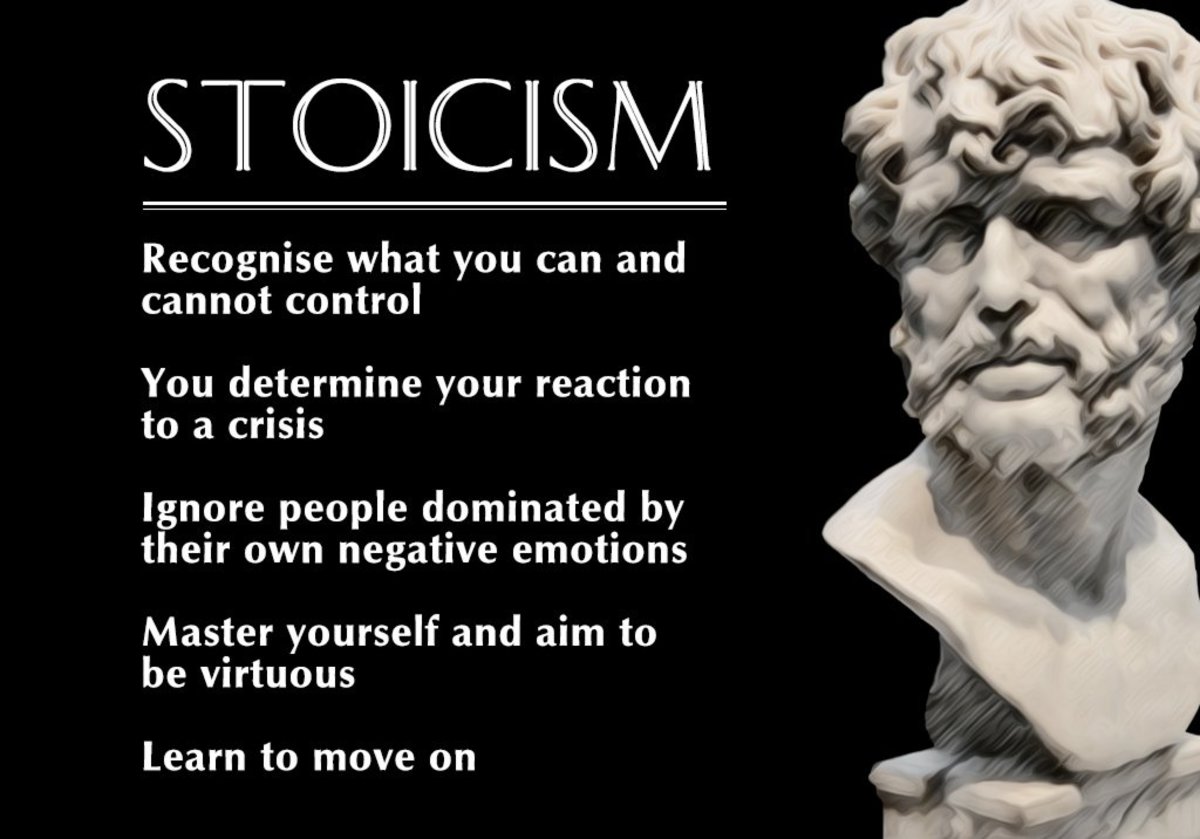
- Focus on things you can control, ignore the rest.
- A strong mental model of time and a present moment focus.
- Accept what is [however painful] and don't distract yourself chasing short-term pleasure.
- Have a clear value system and walk the talk.
- Don't be ruled by your emotions.
- The importance and power of framing.
- Be rational and exercise good thinking skills.
- Recognise that you live in an inter-connected universe so act in alignment with the common good and in harmony with the natural world.
- Live to be the best version of you - pursue excellence in living virtuously [wisdom, courage, moderation, justice, truth etc].
- Regularly focusing on your death to remind you to live each day as if it was your last.
[2] Areas where the stoics fall short and things they don't do:
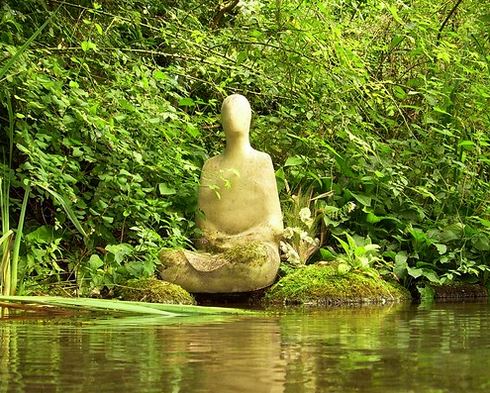
- Accepting the limitations of a rational approach to life.
- Rather than denigrating the body, recognising that (a) your
body will always reflect the truth of your state of mind, and (b) that emotion is
your body's reaction to your mind.
- Knowing how to stop thinking - via mindfulness practise.
- Recognising that emotions require deep acceptance, and are not there to be suppressed but worked with.
- Understanding brain structure and the need to work with ALL areas of the brain - i.e. the need for brain balance.
- Recognising the power of the subconscious mind as the source of your resistance/immunity to change.
- Recognising the existence and importance of the higher/spiritual/transcendent mind.
- Understanding that we live in an energetic universe and understanding and practising the management of our energetic states.
[3] Pulling it all together
The Stoics offer us some powerful beliefs and practises. Whilst much of this has stood the test of time and is still relevant now nevertheless we have to accept that it is a reflection of an ancient Greek world view.
When weighing and consider new beliefs I always like to remind myself:
1. No belief tradition of any persuasion has a monopoly on the truth.
2. To consider the advice of the Buddha on how to handle beliefs:
Reflections and Action Points
Reflections
What truly is under my control vs. what isn’t?
- The article emphasises the “dichotomy of control” — focusing on what you can influence, and letting go of the rest.
- Question: In my current life (work, relationships, inner life) what have I been treating as if I can control it, but really I can’t?
- Question: Conversely, what aspects have I been neglecting that
How do I handle pain or discomfort, and how much do I chase short-term pleasure?
- The Stoics encourage acceptance of pain rather than running from it, and caution against chasing fleeting pleasure at the cost of long-term good.
- Question: When faced with discomfort (e.g., waiting in slow traffic, dealing with a difficult email, a meeting going badly) do I resist/avoid or do I accept and learn?
- Question: What short-term temptations am I allowing to dominate (status, wealth, excitement, comfort) that may undermine my longer-term clarity or well-being?
What is my value system, and how well am I walking it?
- The article lists the Stoic virtues: wisdom, courage, temperance, justice.
- Question: What 3-5 core values do
- Question: In the past week, where did I behave in alignment with those values? Where did I deviate?
How conscious am I of my mortality and how does that affect what I prioritise?
- The “memento mori” reminder.
- Question: If I knew I had limited time (today, this year, this decade), what would change in how I spend my energy or attention?
- Question: What legacy or impact do I want to leave behind?
How does my mindset align with being the “best version” of myself?
- The Stoics say being excellent (virtue/arete) is both the path and the reward.
- Question: What “excellence” means in my work (for your context → building the digital ecosystem for thought-awareness).
- Question: What habits or thoughts are holding me back from that “excellent version”?
Action Points
Weekly “Control Audit”
- At the end of each week, list 3 things I fully controlled (responses, habits, decisions) and 3 things I didn’t control (other people’s actions, outcomes).
- For each “didn’t control” item, ask: “Was I worrying about this? Did I act as if I could control it?” If yes → practise letting it go.
- For each “did control” item, ask: “Did I act in line with my values and aim for excellence?”
“Waiting in Traffic” Practice (or any unavoidable delay)
- Use times when you are stuck (traffic, queues, delays) as micro-practice: recognise your emotions (impatience, frustration), then shift to what you can do (breathe, observe, reframe).
- Set a simple prompt: e.g., when I am stopped/unmoving for more than 2 minutes, I will say quietly: “This moment I control my response.”
- Afterward, note how you felt, what changed (if anything). Over time you build the muscle of response control rather than reaction.
Define and Integrate Your Value List
- Write down your 3-5 core values (for example: clarity, service, agility, resilience, calm).
- For each value, define 1-2 “walk the talk” behaviours (e.g., “climb out of reactive mode within 5 minutes of noticing frustration”).
- Each morning pick one value to focus on that day. Observe: did I behave in line with it? If not, what got in the way?
Mortality Reminder (Memento Mori)
- Once a week (or once a month) set aside 5-10 minutes to ask: “If today were the last day of this phase/this year/this decade, what matters most?”
- Then pick one concrete change to make based on that reflection (e.g., contact someone you value, work on a meaningful micro-project, prune a habit that doesn’t serve).
- Make it visible—write it down, set it as a calendar reminder, stick a note.
Habit of Deferred Gratification
- Identify one habit where you currently prioritise immediate enjoyment over longer-term clarity or resilience (e.g., mindless scrolling, reactive email checking, comfort eating, bingeing).
- Choose one replacement behaviour that requires a little sacrifice but aligns with your “excellent person” trajectory (e.g., 10 minutes of reflection instead of checking phone, write a short blog post instead of watching streaming).
- Track it for 30 days: Did I do the replacement instead of the default? What changed in how I feel, how I respond, how my clarity holds?
Further Resources
Here are a number of touch points with other key articles on this site:

Return to: Home Page
LATEST ARTICLES
Living in Survival Mode Without Surrendering Mental Authority
Living in Survival Mode Without Surrendering Mental Authority
 Clear Thinking When You’re Just Trying to Stay Afloat. Many people today are overwhelmed because they are living in survival mode - not temporarily, but as a persistent condition of life. For many, th…
Clear Thinking When You’re Just Trying to Stay Afloat. Many people today are overwhelmed because they are living in survival mode - not temporarily, but as a persistent condition of life. For many, th…Manifestation Without Magic: A Practical Model
 Manifestation without magic is not a softer or more intellectual version of popular manifestation culture. It is a different model altogether. Popular manifestation teachings tend to frame reality as…
Manifestation without magic is not a softer or more intellectual version of popular manifestation culture. It is a different model altogether. Popular manifestation teachings tend to frame reality as…Staying Committed When You Can't See Progress - The Psychology of Grit
 Uncertainty Is Not The Absence Of Progress, Only The Absence Of Reassurance. One of the most destabilising experiences in modern life is not failure, but uncertainty and staying committed when you can…
Uncertainty Is Not The Absence Of Progress, Only The Absence Of Reassurance. One of the most destabilising experiences in modern life is not failure, but uncertainty and staying committed when you can…The Battle For Your Mind - How To Win Inner Freedom In A Digital Age Of Distraction
 From External Events to Inner Events. We often think of “events” as things that happen out there: the traffic jam, the rude comment, the delayed email reply. But what truly shapes our experience is wh…
From External Events to Inner Events. We often think of “events” as things that happen out there: the traffic jam, the rude comment, the delayed email reply. But what truly shapes our experience is wh…How to See Your Thoughts Without Becoming the Story
 A Practical Guide to Thought-Awareness. You can spend your life inside the stories of your mind without ever learning how to see your thoughts clearly and objectively. Most of the stuff we tell oursel…
A Practical Guide to Thought-Awareness. You can spend your life inside the stories of your mind without ever learning how to see your thoughts clearly and objectively. Most of the stuff we tell oursel…The Collison Decision Matrix - A Simple Framework for Better Choices
 The Collison Decision Matrix Is A Practical Everyday Thinking Tool. Most of us spend a surprising amount of time worrying about decisions. From small ones such as what to wear, what to eat, what to te…
The Collison Decision Matrix Is A Practical Everyday Thinking Tool. Most of us spend a surprising amount of time worrying about decisions. From small ones such as what to wear, what to eat, what to te…The Power Of Asking The Right Question
 The Power Of Asking The Right Question Lies In The Quest For Insight. To experience the power of asking the right question you must develop the practice of asking questions. The best way to improve th…
The Power Of Asking The Right Question Lies In The Quest For Insight. To experience the power of asking the right question you must develop the practice of asking questions. The best way to improve th…Site Pathways
 Here is a site pathway to help new readers of Zen-Tools navigate the material on this site. Each pathway is based around one of the many key themes covered on this site and contain a 150 word introduc…
Here is a site pathway to help new readers of Zen-Tools navigate the material on this site. Each pathway is based around one of the many key themes covered on this site and contain a 150 word introduc…How To Live With Contradiction - Beyond Thought Let Stillness Speak
 A major impact on so many peoples' lives is the situational contradiction of unfilled realistic expectations. So where does all this leave us? Well here we are, with mental equipment that is more lim…
A major impact on so many peoples' lives is the situational contradiction of unfilled realistic expectations. So where does all this leave us? Well here we are, with mental equipment that is more lim…How To Trust The Process Of Mindfulness - Right Now
 In mindfulness, the process isn’t some distant goal — it's what is happening right now. When we talk about how to trust the process of mindfulness the credibility of the process is heavily dependent…
In mindfulness, the process isn’t some distant goal — it's what is happening right now. When we talk about how to trust the process of mindfulness the credibility of the process is heavily dependent…Inner Mastery For Outer Impact - Mental Clarity For Effective Action
 Insights only matter if they translate into consistent action. In a world crowded with quick fixes and motivational soundbites, the theme “Inner Mastery for Outer Impact” calls us to something more e…
Insights only matter if they translate into consistent action. In a world crowded with quick fixes and motivational soundbites, the theme “Inner Mastery for Outer Impact” calls us to something more e…